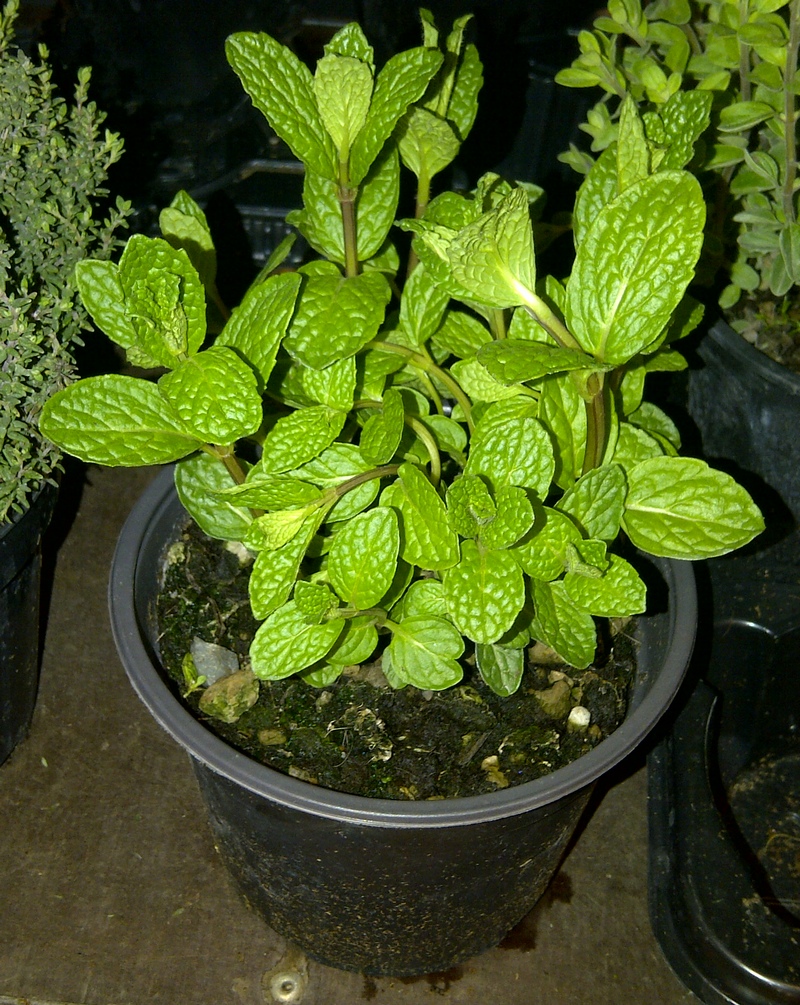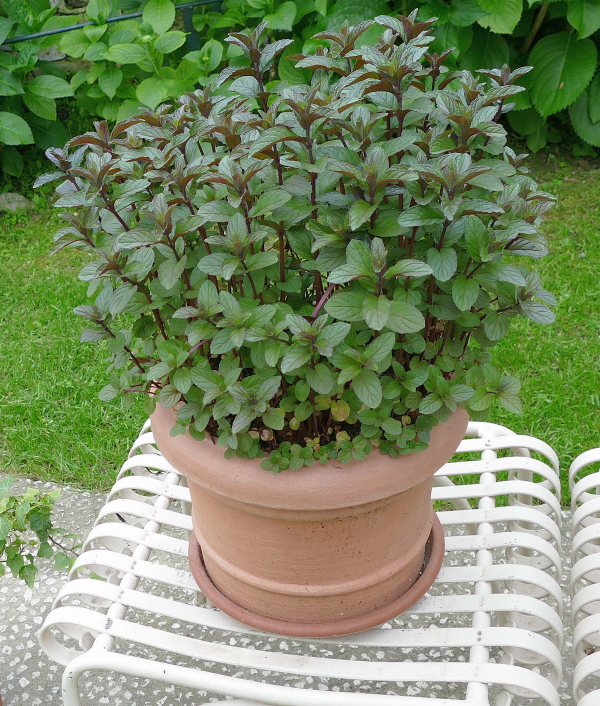The genus Mentha includes about 40 species, 15 hybrids and hundreds of cultivars of plants of this genus belonging to the Lamiaceae family.
Mentha genus is divided in:
- Audibertia
- Eriodontes
- Mentha
- Preslia
- Pulegium
Most are perennial sunplants and native to Europe, grown in the USA, Canada, Europe, Asia, Australia and South America.
Mint contain essential oils and is widely used as an aroma in drinks, foods and cigarettes.
From an economic point of view the most important species are:
- Mentha aquatica L.
- Mentha canadensis L.
- Mentha spicata L. (spearmint) and their hybrids ( Mentha - piperita L. peppermint)
The typical flavor of mint is due to menthol, an alcoholic terpene and carvone, a terpene ketone.
Mint leaves are used as tea against digestive disorders, headaches.
________________________
Mentha piperita (peppermint) is a hybrid mint and grows in temperate areas and is utilized by the cosmetic, pharmaceutical and food industries.

It is native to Europe, USA, Canada and is intensively cultivated all over the world for its particular perfume and taste and has been used by traditional medicine to treat cramps, nausea, indigestion.In particular, it is utilized in the form of essential oil (extracted by steam distillation from the aerial parts) and extracts.
It contains some useful components for human health, phenolic acids and flavonoids: rosmarinic acid, quercetin, gallic acid, components known for their antimicrobial (1), antioxidant (2) and antifungal action (3).
This study explored the antibacterial activities of a mentha piperita extract and concluded that the polyphenol content demonstrated bacteriostatic properties and antiadhesive activity against strains of bacteria of the genus Asaia (a contaminant of industrial beverages) confirming its total antioxidant activity (4).
Another special feature of the healing properties of this mint is the improvement in the wound healings treated with topical application of essential oil (5).
For more information: Mentha piperita studies
References___________________________________________________________
(1) Seyedeh Maryam Sharafi, Iraj Rasooli, Parviz Owlia, Massoud Taghizadeh, and Shakiba Darvish Alipoor Astaneh Protective effects of bioactive phytochemicals from Mentha piperita with multiple health potentials Pharmacogn Mag. 2010 Jul-Sep; 6(23): 147–153. doi: 10.4103/0973-1296.66926
(2) Ravindra M.Samarth, Meenakshi Panwar, Manish Kumar, Anil Soni, Madhu Kumar, Ashok Kumar Evaluation of antioxidant and radical-scavenging activities of certain radioprotective plant extracts Food chemistry, 2008 - Elsevier
(3) Mafakheri H, Mirghazanfari SM Antifungal activity of the essential oils of some medicinal plants against human and plant fungal pathogens. . Cell Mol Biol (Noisy-le-grand). 2018 Dec 31;64(15):13-19.
(4) Antolak H, Czyżowska A, Kręgiel D. Activity of Mentha piperita L. Ethanol Extract against Acetic Acid Bacteria Asaia spp. Foods. 2018 Oct 18;7(10). pii: E171. doi: 10.3390/foods7100171.
(5) Modarresi M, Farahpour MR, Baradaran B. Topical application of Mentha piperita essential oil accelerates wound healing in infected mice model. Inflammopharmacology. 2019 Jun;27(3):531-537. doi: 10.1007/s10787-018-0510-0.
![]() Mentha piperita
Mentha piperita 





